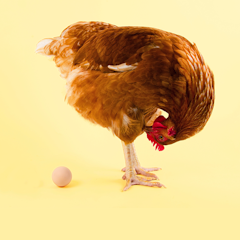
Flinders University

With a vision to be internationally recognised as a world leader in research, an innovator in contemporary education, and the source of Australia’s most enterprising graduates, Flinders University aspires to create a culture that supports students and staff to succeed, to foster research excellence that builds better communities, to inspire education that produces original thinkers, and to promote meaningful engagement that enhances our environment, economy and society. Established in 1966, Flinders now caters to more than 26,000 students and respectfully operates on the lands of 17 Aboriginal nations, with a footprint stretching from Adelaide and regional South Australia through Central Australia to the Top End.
Links
Displaying 61 - 80 of 1095 articles

You’ve tried everything to get some sleep, but nothing’s working. Here’s what not to do, and what works.

The $12.6 billion agreement promises a new era of cooperation between governments, the vocational education and training sector, business and the community.

Many studies showing an impact of insomnia on the body are flawed or not meaningful in everyday life. But they can lead to scary headlines.

La biologie évolutive et les archives fossiles révèlent beaucoup de choses sur les origines des poules et des œufs.

Longtemps méprisés et opprimés sur leurs terres ancestrales, les Aborigènes vont peut-être obtenir au Parlement australien une instance expressément consacrée à l’amélioration de leur sort.

On New South Wales’ southern coast, First Nations groups and European whalers hunted alongside orcas. But what happened to this unusual group?

Most of us see only the dry treeless plain and spectacular sea cliffs. But beneath the surface there’s a precious world of caves and unique species that could be lost without better protection.

The disability royal commission has heard from thousands of people with disability and their families. But the response must involve everyone.

As part of the new employment white paper the federal government has announced it is thinking seriously about a national skills passport.

Evolutionary biology and the fossil record reveal a great deal about the origins of chickens and eggs.

No matter how much we believe our knowledge and our technological capabilities have evolved, pandemics prove we are still at the mercy of the natural world.

Filters have a long history on social media platforms. They are a massive part of social media culture and storytelling practices.

Bruce Petty woke editorial cartooning from a sleepy period telling fairly anodyne jokes and turned it into a mode of serious – if also often hilarious – satirical commentary on politics and society.

Beberapa ahli mengkhawatirkan terciptanya ekspektasi yang tidak realistis yang berkaitan dengan kekerasan berbasis gender dan potensi kecanduan. Yang lain mengatakan bahwa pendidikan dapat membantu mengimbangi bahaya-bahaya ini.

98% of Australia’s Japanese population were sent to internment camps during the second world war.

Non-playable characters, or NPCs, are taking TikTok by storm – a trend where people pretend to be background video game characters for profit.

Family memoir and reimagined history dovetail beautifully in Kate Grenville’s latest novel.

Researchers simulated thousands of scenarios of an ancient pathogen being released into modern ecosystems. In the worst cases, up to one-third of host species were destroyed.

Feral honeybees have become a major problem in Australia. It’s time to develop effective and practical control measures.

Reagan is the only union leader to serve as US President. Paradoxically, he was also one of the most aggressively anti-union presidents of the 20th century.
